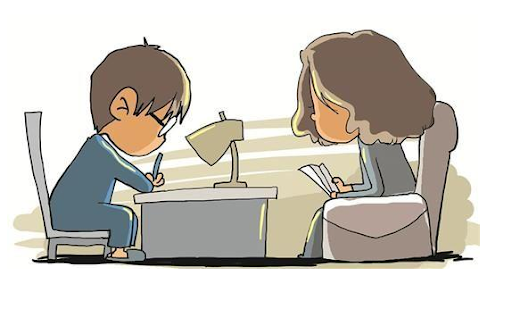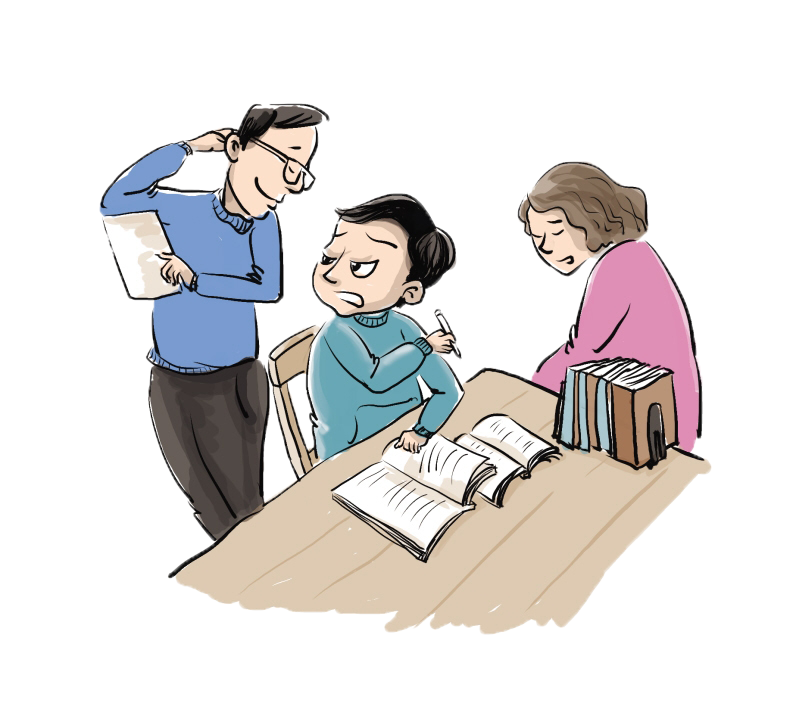Studying abroad of underage students is now a trend, with more and more children starting before they reach adulthood. Of course, the benefits of studying at an early age are also obvious: easier integration into the local social and culture life, better access to the foreign language, better chances of further education, etc.
However, many parents believe their children cannot take care of themselves and are worried about their safety. They may give up their career to choose to go abroad with their children. Is co-reading good for students?

Influence on children.
Parents may “replace” their child with a part of the study abroad experience.
With parental care, children won’t need to care for themselves and lose the opportunity to live independently. Parents often want to ensure that their children are comfortable, but sometimes experiencing a little “discomfort” is an opportunity to grow and breakthrough their limitations.
The wealth of extracurricular activities that Canadian high schools offer is also worth experiencing to the fullest, and parental care means “my mom calls me home for dinner.” This leaves students with fewer opportunities to participate in extracurricular activities, making it difficult for them to integrate into the local social and cultural life and slow their English language skills improvement.

Influence on parents.
Canada does not have a co-reading visa.
Canada does not have a co-reading visa, so parents who choose to study with their children are on a visitor visa. In general, visitors can obtain multiple-entry visas for a period of 1-10 years, which provides a certain degree of freedom, but only for a maximum stay of 6 months at a time. So even if parents spend time with their children, they must go back and forth between the two countries which will waste a lot of time, money, and energy. The child’s studies are disrupted in the ongoing care of the parents.
Parenting may face a cultural gap.
Parents of young children with limited English proficiency will face many communication barriers in their daily lives, which may cause some language stress. Therefore, it is often difficult for them to integrate into the local parent community and to participate in school activities and communicate with others.
For this reason, parents should consider how open-minded they are when considering choosing co-reading and worry about themselves before they worry about their child. Parents can embrace freedom while their child is at school.
Co-reading need to be supported by financial conditions.
The objective conditions that need to be considered are, of course, the cost, sending the child out to study is a big investment, and the co-reading means increasing the cost of studying abroad. This means that the parent who is co-reading full-time in Canada has no income to support the child’s tuition and expenses.

Co-reading means widowhood.
One of the spouses must go abroad to study with their children, so the pressure is on the parent who stays in the country. The couple is far away from each other, and they do not have much time to communicate, so it has a great impact on their relationship.
Parents should consult their children when deciding whether to go with them. It is not feasible for parents to force their children if they indicate that they want to experience an independent life. In addition, parents should also judge their preferences for life abroad; after all, co-reading is not a full-time nanny. If the parent doesn’t enjoy the foreign environment, how can they provide support for their child?
Of course, if parents can’t be assured their children are safe and secure, they should choose private boarding schools.
Huron International School is the right choice for parents! Our school has an apartment, a canteen, an unobstructed communication between parents and teachers, regular activities to enrich students’ extracurricular life, and a full range of care from classroom teachers so that parents don’t need to give up their careers and families, face financial and language pressures, and travel far to accompany their children.

